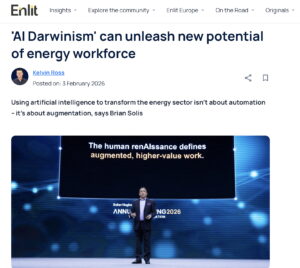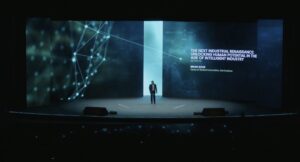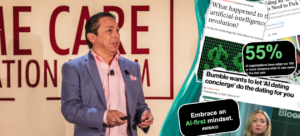Every day when you get to the office, there is a surmountable volume of work that greets you. The list is usually pretty long, with calls to return, to do items stacked up, emails overflowing, meetings, marketing and sales planning to fill the pipeline. It’s all in a day’s work. But what if one day you woke up and noticed that the volume of work was notably less? I’m sure you’d be relieved for a bit. But then each day, you start to notice that the trend only continues. Your relief shifts to concern and eventually panic. “What’s happening!?,” you start asking. The answers reveal that your markets shifted because your visitors and your tourism stakeholders started to think and then act differently. While you were busy keeping up with your existing tourism plan and your annual campaign, your market inevitably evolved away from you.
Sounds like a nightmare right? The good news is that it’s the kind of bad dream that you can wake up from and say, “phew!” The bad news is that this scenario is playing out right now, slowly at first, but then quickly. The reality is that change is accelerating and we have a choice in what we do about it. It’s what you do differently moving forward that defines your place in the future of the DMO industry. While the idea of what you market and sell is relatively the same, it’s the how and also why that separates where you are from where you need to be.
If you think about it, change is less of a threat and more of a gift to shape the future of your work and your industry.
Iteration vs. Innovation
We live in an era of digital Darwinism, a state of evolution where technology and society continues to evolve. The question is, where do we fall in that evolution?
I know, I know. Change is hard, but you’re trying. You’re learning new things, adopting the latest tech, experimenting with state-of-the-art digital marketing. Bravo. This is a great place to start. Learning is how we open new doors. But this only gets us so far. How so, you ask? When we learn something new, we tend to apply it to existing mindsets, how we see and value what we see. Said another way, we take what’s new and use it in ways that are familiar to us. This leads to what I call iteration, which is often confused with innovation. It just takes us incrementally further. But innovation takes, in addition to learning, the ability to also unlearn many things we accept as standard protocol to do new things that unlock new opportunities. The differences between iteration and innovation are important as both are needed to compete for the future right now. It just takes balance…
- Iteration is doing the same things better.
- Innovation is doing new things that create new value.
- Disruption happens when the new things make the old things obsolete.
Funnel Vision: Designing the Customer Journey 2.0
In my research as a digital analyst and anthropologist, I learned that one of the catalysts for true innovation and even disruption is exploring not only new technology and trends but also how people are changing in parallel. The answer has been hiding right in front of us this whole time. See, technology is only part of the story. The rest is about how people adopt and in turn use all of this stuff. It reveals how, what and why we need to change, how to be discoverable and relevant and to whom and how to design new products and services that matter to each of our customer groups.
With the rise of social media, pervasive internet and mobile devices, how your visitors and potential visitors discover, learn, share and make decisions has forever changed. In the process, every new technology and the new capabilities they introduce to customers is radically reshaping the customer journey. And, this evolution has impacted everything from marketing to sales to relationship-building.
I know one of the common reactions to this message is to think, “yeah, but that’s just for B2C companies.” Nope. The truth is that it’s every type of company and organization, B2B included and beyond. Because in the end, it’s all about human beings and how they use technology and experiences to make decisions.
How you reach people, how they learn about you, what they value and how they make decisions accordingly is all changing. You must adapt too.
Innovation starts with learning and unlearning. It also takes seeing new possibilities in all the things we missed, misjudged, or chose not to see. Innovation is all the work you do to conform to expectations and aspirations of people as they evolve instead of making them conform to your legacy perspectives, assumptions, processes and metrics of success.
To reach and engage people differently, to earn relevance and ultimately their business, we need to see the world through their eyes and walk in their steps. We need to understand how they discover, where they go, what they ask, what they value, and how they make decisions, et al. Undergoing an out of body digital-first and even mobile-first customer journey teaches us everything. It makes us see and feel things differently.
Yes, you still have your traditional customers who like to do things the way that they always have. However, no innovator ever said, “but that’s the way things have always been done.” You still have to serve them and deliver experiences that they cherish. Change and innovation take an intentional balance between doing what you do well and what you don’t yet know to do well. This takes experimenting with new technology of course, but also learning and unlearning to gain new perspective, empathy and purpose to bring to light new opportunities. Innovation and change start with you.
Originally published at DestinationThink
Brian Solis is principal analyst and futurist at Altimeter, the digital analyst group at Prophet, Brian is world renowned keynote speaker and 7x best-selling author. His latest book, X: Where Business Meets Design, explores the future of brand and customer engagement through experience design. Invite him to speak at your event or bring him in to inspire and change executive mindsets.
Connect with Brian!
Twitter: @briansolis
Facebook: TheBrianSolis
LinkedIn: BrianSolis
Instagram: BrianSolis
Youtube: BrianSolisTV
Snapchat: BrianSolis







Leave a Reply